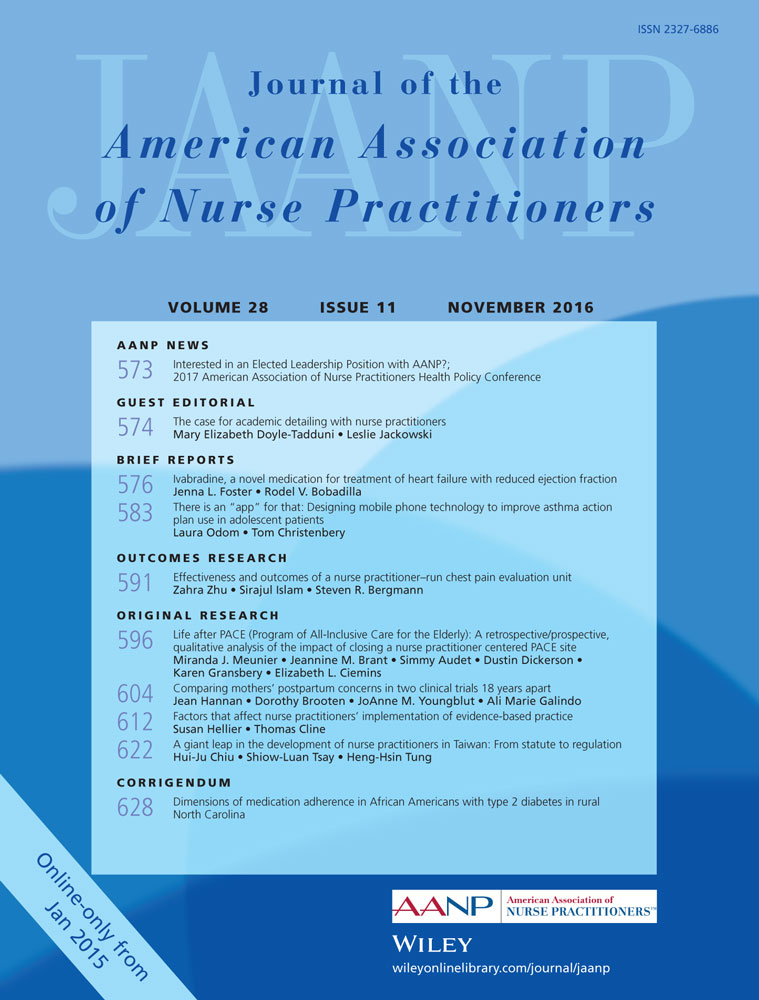Factors that affect nurse practitioners’ implementation of evidence-based practice
Abstract
Background and purpose
Evidence-based practice (EBP) is a key recommendation to improve patient care outcomes. Factors that influence nurse practitioners’ (NPs) ability to implement EBP in the clinical setting have not been fully explored. The study sought to explore NPs’ practice, professional, and personal variables with self-reported ability to implement EBP.
Methods
The study was a correlational, cross-sectional design with a survey data collection methodology. A survey was mailed to 1200 randomly selected clinically practicing NPs, which included the Evidence-Based Education Questionnaire (EBEQ). A total of 480 surveys were returned, which represented a 40% response rate. Statistical analyses were performed to explore relationships between NPs’ demographics and EBEQ scores.
Conclusions
The DNP appears to have additive benefit for self-perceived ability to implement EBP in the clinical setting when compared to the master's degree educated NP. NPs’ gender, age, and number of hours worked weekly also correlated to EBEQ scores. NPs’ practice settings, such as Magnet status designation and employment at an academic center also significantly correlated to EBEQ scores. Other practice setting variables, such as where the practice is located, did not significantly correlate to EBEQ scores.
Implications for practice
The findings of this study provide foundational knowledge to enable increasing NPs’ EBP in the clinical setting.




